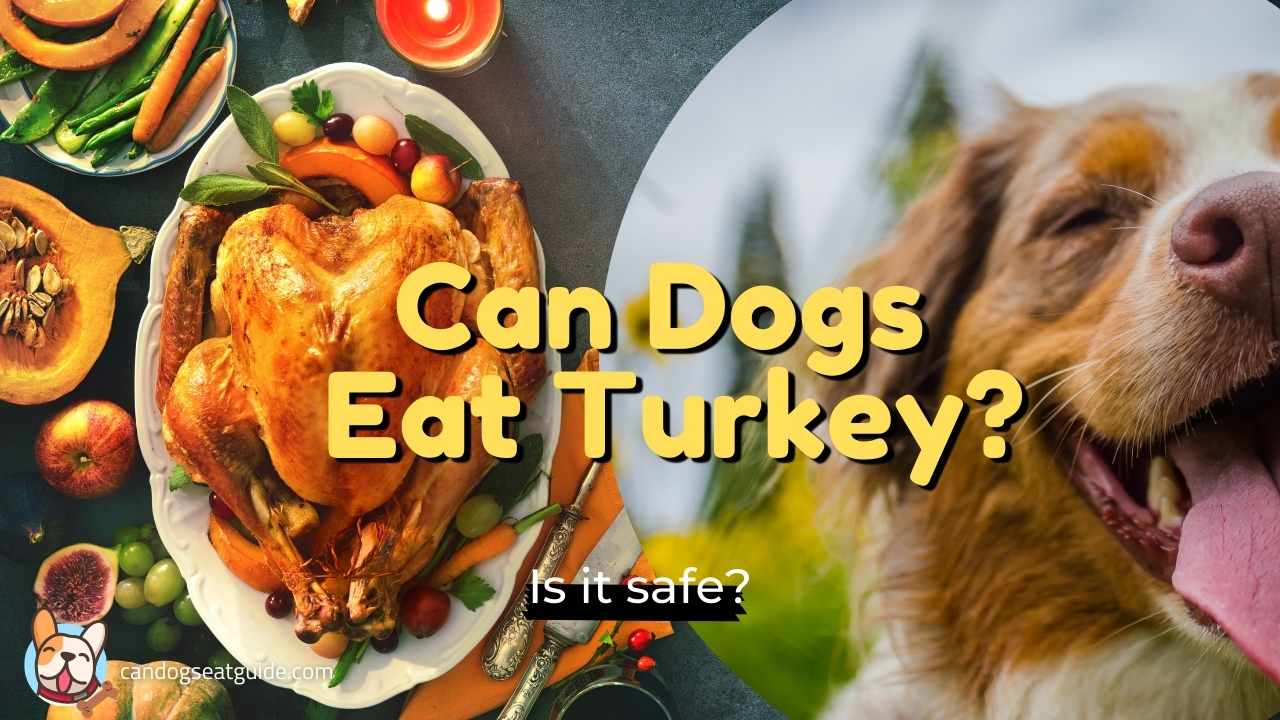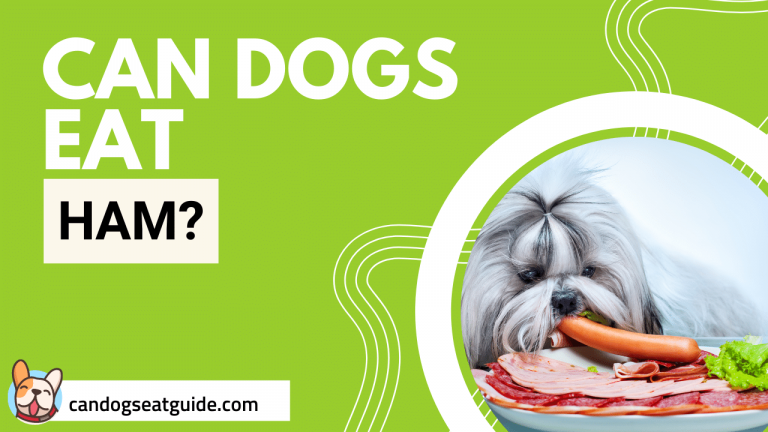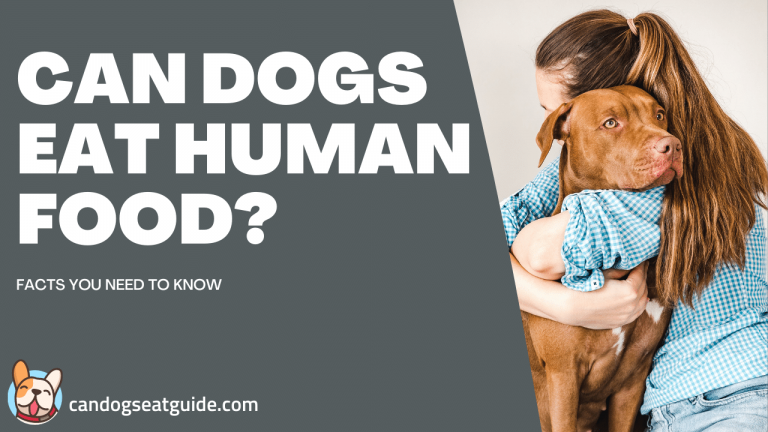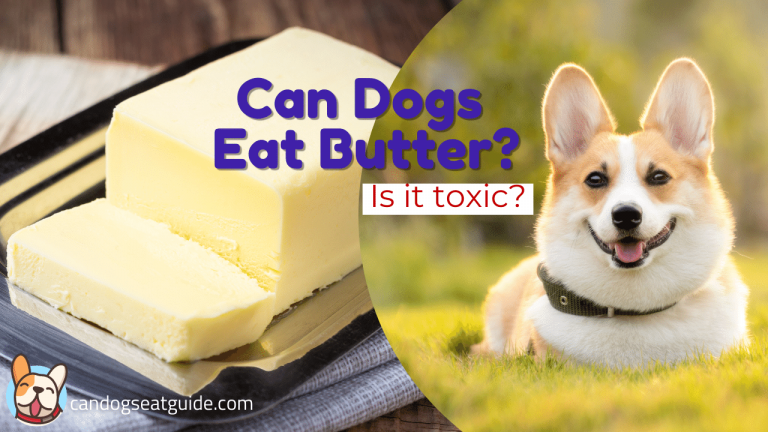So, can dogs eat turkey?
If you’re a dog owner, then you’ve probably pondered this question a few times. A part of you might have been like,
“Hey, it’s meat, right? Why wouldn’t meat be safe?”
But another part might equally have wondered,
“Okay….so it is meat, but what if it contains some harmful stuff like bacon?”
Don’t worry.
All your questions are legit. And that is why here we are with an article that will specifically address the question: ‘Can dogs eat turkey?’
Can Dogs Eat Turkey: What Makes You Wonder
Turkey is a delightful type of meat dish.
Prepared and served the right way, it is bound to win over the hearts of anyone at the dinner table. I mean, talk about something scrumptious, juicy, and meaty all in the same bite.
The love for a stuffed turkey is probably the reason why everyone at Thanksgiving is so stoked about the dinner.
Not only is this a delicacy but also a food that makes you nostalgic about all the amazing family dinners you have had around the dining table with a turkey center stage during it.
All our love for it might even encourage us to offer some right off the plate and to our canine best friend.
Some people might prepare a separate plate for their cute furry babies or offer them some leftovers to lick from.
Unfortunately, a lot of this is not okay.
In fact, such behaviors about tossing whatever is left over to our dogs really need to change, and here is why.
Can Dogs Eat Turkey: Things We Have a Beef With

Onions, garlic, and all the many, many seasonings we add to make our turkey delicious can be extremely problematic for our dogs.
This is because all of them are toxic to a dog.
Onions, for instance, contain a chemical species known as N-propyl disulfide.
The presence of this substance in any food means that it will lead to certain disastrous medical outcomes, the first of which is the destruction of red blood cells.
A massive decrease in red blood cell count, therefore, leads to a quick onset of anemia within dogs which can become fatal if left untreated.
Garlic too contains something known as thiosulfate. This is a chemical species that serve to cause extreme oxidative damage to the linings of your dog’s digestive tract, in particular the intestines.
Other seasonings, similarly, have different types of compounds which can be really harmful to dogs. Chilies, peppers, and even salt can have adverse health effects due to various reasons.
Therefore, offering your dog a slice of the Thanksgiving Turkey is a big, NO.
Can Dogs Eat Turkey: What About Plain Meat?
Fortunately, however, turkey in and of itself is not toxic to dogs.
In fact, one could argue that it is about just as safe as other kinds of meat that you would normally offer your dogs.
And the only reason we would urge you to not feed your dog regular turkey is that well, it can be too expensive a treat in many parts of the world.
Dogs happen to have multiple expenditures as it is and adding expensive meat to the list just doesn’t seem like a wise thing to do.
Can Dogs Eat Turkey: How Should It Be Fed
But if we are to feed it to them even once in a blue moon, there is still that question of how we need to feed it to them.
As I said earlier, feeding them some slices right off the dinner table is never an option. Simply because that would be terrible for a dog.
What you can do instead, is to cut off a few slices before adding in any seasonings.
Now, I understand that doing so to a whole turkey would be rather difficult. Especially, since that would simply ruin the turkey.
And who wants to present a pre-cut turkey on Thanksgiving Day?
Fortunately, there are better options for you to choose from still.
For instance, one might purchase a few slices out of the freezer section and then feed these to your dog after proper cooking.
But please bear in mind that if you do intend to purchase frozen turkey slices then only offer them to your dog if they don’t contain extra preservatives. One way to ensure this is to get precut slices right off the farmer’s market and not from the freezer aisle at your local grocery store.
And remember
Turkey meat is the only thing that should be fed to your dogs. In other words, stay away from the fat and skin since these might contain substances that could cause Bloat in dogs.
Here is a guide that you can refer to as a nutrition guide for your pets.
Can Dogs Eat Turkey: Nutritional Perspective
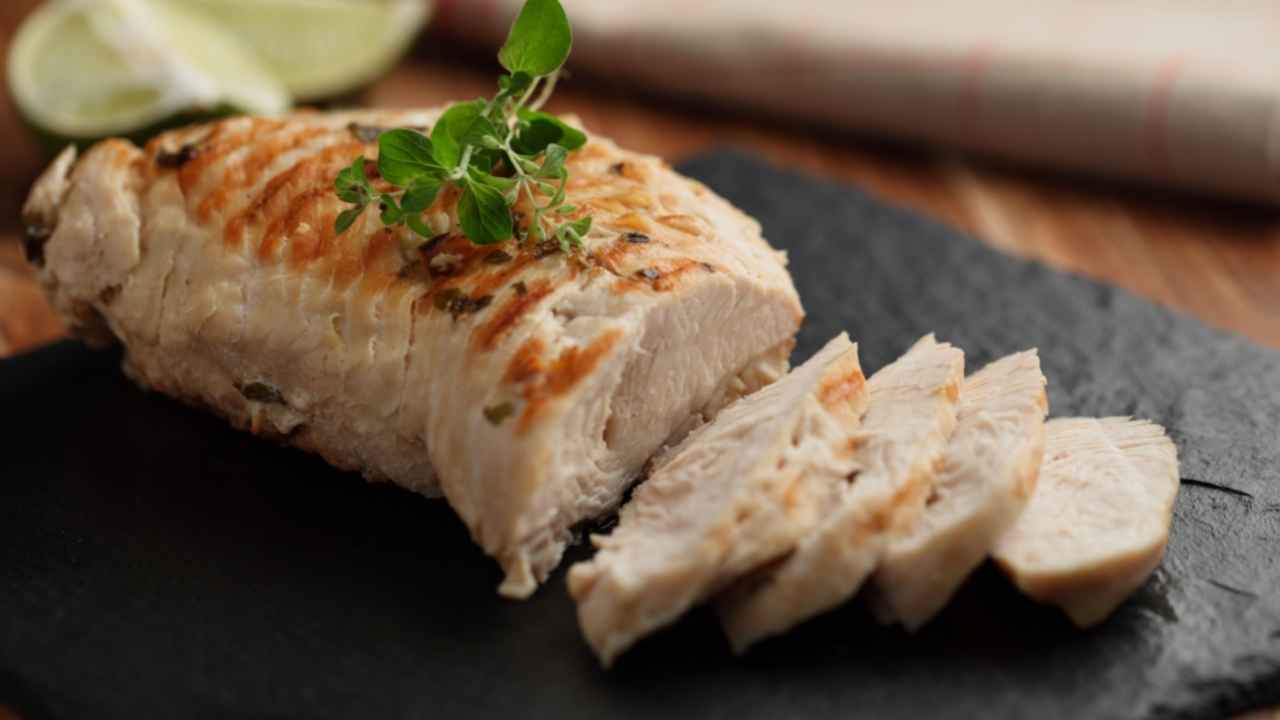
Seeing how it is meat, after all, turkey contains all the nutritional elements typically present in different kinds of meat. This includes protein, Riboflavin, B Vitamins, and so on and so forth.
A better way of learning how turkey can be different from other meats like chicken is to compare the two.
For starters, it is leaner than chicken. In comparison to red meat, it is also far lower in fat and calories; thereby, making it a wonderful alternative to otherwise, fat-rich meats.
Secondly, when compared to chicken alone, turkey tends to have more phosphorous and magnesium.
However
The potassium and iron content are lower in turkey as opposed to in chicken. This means that if you are worried about your dog suffering the consequences of increased potassium intake then you might want to switch up their meats for turkey instead.
And so we see it, folks.
Not only is the answer to “Can dogs eat turkey?” a yes, but a very strong yes.
Can Dogs Eat Turkey: Recipe Guide
So, you’ve decided that you are true, going to offer your pooches some of this wholesome turkey meat. The next question might be,
How do I go about preparing the turkey for them?
Well, here is one idea:
Recipe: Mini Turkey Loaf Muffins
Ingredients
- Ground turkey- 1 lbs;
- Pumpkin Puree- ½ cup;
- Almond flour- ½ cup;
- Frozen carrots and peas- ½ cup;
- Eggs- 1.
Instructions
- Start by mixing all ingredients in a mixing bowl.
- Next, scoop up appropriate amounts and add to a mini muffin baking tray.
- Feel free to grease them with a little coconut oil.
- Finally, bake for 20 minutes at 350 ◦F.
- And there you have it, the perfect little dog treats.
Video Recipe
Can Dogs Eat Turkey: Fun Facts About Turkey
And alas folks.
If we are going to feed something to our pets, what’s the harm in learning a little bit more about that thing’s history and characteristics?
So here we go, a few fun facts about this deli product.
- For starters, only male turkeys can gobble. This is why females are referred to as “hens” whereas males are called “gobblers”
- While domesticated turkeys are bred to be heavyweight, wild turkeys can fly. In fact, they are known to fly in short bursts at about 55 miles per hour. Granted though that they are not made for long flights.
- Thought only chameleons could change color? Well, not quite. Turkeys might not be able to camouflage themselves by changing into different colors, but they can still exhibit a range of different kinds of colors whenever their mood changes. Typically, their facial color changes from white to blue to red, depending on how excited they are by a given situation. Therefore, the more intense the color, the more excited the turkey may be.
Can dogs eat turkey as a treat?
Yes. Dogs love this delicious, scrumptious meat.
Can dogs eat turkey every day?
Yes. But please be sure to add other nutritional ingredients as well.
Can dogs eat turkey if it is still raw?
No! Raw turkey might contain bacteria and lead to food poisoning.
What’s the best way to feed turkey to dogs?
There is no one best way but please ensure that the meat is lean, unseasoned, and thoroughly cooked.
Can dogs eat turkey and have a reaction to it?
Allergies vary from dog to dog. Therefore, it is best to consult a vet in such a case.

